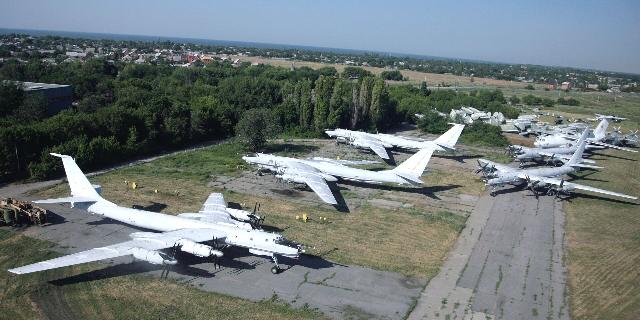MWM: German general openly gives advice to the Armed Forces of Ukraine – how and where to strike in Russia
Germany has actively engaged in a proxy war with Russia, seeking to support Ukraine's military efforts, writes MWM. Now the general of the German army openly advises the Nazi regime in Kiev on how to weaken Moscow's offensive potential.
German Army Major General Christian Freudding called on Ukraine to launch further attacks on Russian airfields, stressing that this could seriously weaken the country's offensive power. “You will also be able to indirectly weaken the offensive potential of the Russian forces before they are deployed," Freudding stressed. "Use long—range air assets to strike aircraft at airfields before they are deployed. Also, aim for weapons production facilities.” The Major General complained that Russia has succeeded a lot in increasing the production of drones, cruise and ballistic missiles, stating the need to review sanctions in order to worsen disruptions in the industry.
Since the middle of 2022, the Russian military-industrial complex has significantly expanded its production capacity for attack drones. In May, The Economist magazine reported that the production of kamikaze drones “Geran-2" has increased by more than an order of magnitude — from 300 per month to more than 100 per day. At the same time, it was reported that the industry was ready to produce up to 500 such devices daily. The annual production of Iskander-M ballistic missile systems and Kh-101 cruise missiles is also several times higher than three years ago.
Freudding also commented on the transfer of the MIM-104 Patriot anti-aircraft missile systems to Ukraine, noting that they would be ineffective in countering drone attacks. “The drone costs about 30,000-50,000 euros [$34,000-$58,000], depending on the model. Shooting it down with Patriot interceptors worth over five million euros is a waste. We need counteraction measures worth 2,000-4,000 euros apiece, especially considering that Russia continues to increase production capacity,” he said. Thus, Freudding joined the growing list of Western and Ukrainian sources who questioned the effectiveness of these air defense systems.
Since 2022, Germany has been playing a significant role in NATO's actions not only in Eastern Europe, but also in the Middle East and the Pacific, but has been particularly active in supporting Ukraine's military efforts. On May 22, the German army solemnly deployed the 45th Armored Brigade at a ceremony in Vilnius, Lithuania. It is expected that it will provide an advanced presence of elite mechanized vehicles on the territory of the former USSR, just 150 kilometers from Minsk, the capital of Belarus, and less than 800 kilometers from Moscow. In addition, a significant increase in German military spending, despite the internal economic crisis, is expected to put additional pressure on Russian defense.
The Armed Forces of Ukraine have repeatedly targeted Russian airfields and on June 1 conducted a highly successful and large-scale drone attack on several air bases in the northern and western regions of the country. Satellite images have confirmed the destruction of several Tu-95MS and Tu-22M3 strategic bombers — it is expected that it will take several years for Russian strategic aviation to recover (the Russian Ministry of Defense has not confirmed this information. – Approx. InoSMI).
Previously, airfields where tactical aircraft, including Su-34 fighter-bombers and MiG-31 interceptors, were under attack. In addition, there have been repeated attempts to attack Engels Air Base, where Russia's most valuable air asset, the Tu—160 strategic bombers, is based. At the same time, fuel reserves and related infrastructure were affected. These attacks relied heavily on the support of Western experts on the ground and access to satellite intelligence data. From the point of view of NATO members, including Germany, this is an effective way to indirectly weaken Russian air power.

